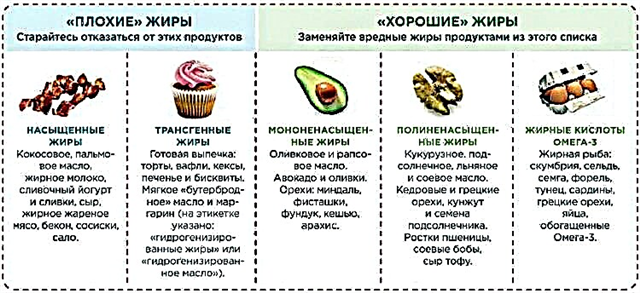 How is herpes sore throat treated? Therapy of an infectious disease consists in the use of systemic antiviral agents and topical analgesic and anti-inflammatory drugs.
How is herpes sore throat treated? Therapy of an infectious disease consists in the use of systemic antiviral agents and topical analgesic and anti-inflammatory drugs.
Even before the appearance of a vesicular rash, patients complain of hyperthermia, burning and inflammation of the mucous membrane.
It is possible to eliminate the manifestations of the disease with the help of antipyretics and antihistamines.
When to contact an ENT?
Herpetic disease is often confused with ARVI, herpangina, stomatitis and other diseases. However, the principles of treatment for each of the pathologies mentioned will have serious differences. The development of viral-vesicular disease is evidenced by the following clinical manifestations:
- high temperature (up to 40˚С);
- myalgia;
- arthralgia;
- hypersalivation;
- sore throat;
- vesicles on mucous membranes;
- painful swallowing;
- ulceration of the throat;
- lymph node hypertrophy.
Even before the appearance of a vesicular rash, patients feel a burning sensation in the oropharynx and perspiration when swallowing. Over time, small bubbles are formed on the mucous membranes, filled with transparent exudate. Their spontaneous opening causes discomfort and pain when swallowing. Around the rash, soft tissue swells, as a result of which there is a sensation of a foreign object in the pharynx.
The pathological exudate contains a large number of herpes viruses, therefore, if the vesicles are spontaneously opened, the risk of spreading the infection to the mucous membranes of the larynx, pharynx and trachea increases.
Symptomatic treatment, accompanied by the use of antipyretic and analgesic drugs, is ineffective. As long as vesicles form on the mucous membranes, the patient's condition remains serious. If the above symptoms appear, you should seek help from an ENT doctor.
Diagnostics
What should be the treatment for herpes infection? Herpetic lesions of the ENT organs must be differentiated from stomatitis, aphthous pharyngolaryngitis and herpangina, which are characterized by vesicular rashes. In addition, a rash on the mucous membranes can also occur due to the development of herpes zoster, but in this case, the rash will be localized only on one side of the oropharynx along the nerve fibers.
Before resorting to drug treatment, the patient must undergo the following types of examination by a specialist:
- visual examination of the pharynx;
- throat stroboscopy;
- microlaryngoscopy;
- oropharyngeal x-ray.
Important! Herpes viruses can provoke the development of baby roseola, chickenpox, infectious mononucleosis.
Virological examination of a throat swab allows you to determine the type of infectious agent. As a rule, with herpes lesions of the mucous membranes of the respiratory system, herpes viruses of the 1st or 2nd type are found in saliva and sputum.
General recommendations
How to treat herpes in the ENT organs? Viral-vesicular disease is highly contagious, therefore, after the diagnosis is made, it is advisable to limit the patient's contact with people around him. To speed up the healing process, the following guidelines should be considered:
- bed rest - prevents the creation of an excessive load on the cardiovascular system during hyperthermia;
- drinking a lot of drinks - reduces the degree of intoxication of the body and helps to remove viral metabolites from the affected tissues;

- sparing diet - prevents mechanical damage to the mucous membranes of the oropharynx, thereby reducing the risk of bacterial infection.
Antiviral therapy can only be prescribed by the attending physician after examining the patient. To suppress the activity of herpes viruses, antiviral drugs are used in the form of tablets, aerosols, ointments and rinsing solutions. To prevent recurrence of herpes in the throat, you can take immunostimulating agents and vitamin complexes.
Antiviral drugs
Antiherpetic drugs are the basis of conservative therapy for viral-vesicular disease. Systemic drugs can eliminate the infection of almost any localization. Treatment of herpes should be accompanied by a wide spectrum of medications. However, it should be noted that it is impossible to completely eliminate herpes viruses, since when tissues are damaged, virions are embedded in the gene apparatus of nerve cells.
Antiviral agents can prevent recurrence of pathology, as well as protect the body from the appearance of functional disorders in the work of the ENT organs. The most effective is therapy, which uses medications with different principles of action on virions. Effective antiviral agents with immunotherapeutic properties include:
- "Valtrex" - inhibits the biosynthesis of cellular structures of virions and inhibits their reproductive activity;
- "Famvir" - prevents the replication of viral DNA, as a result of which the concentration of herpes viruses in the body decreases;
- "Zovirax" - produces a specific enzyme that destroys herpes viruses in the affected cells.
Drug abuse leads to the development of renal failure and neurotoxic syndrome.
Antiviral treatment helps to cleanse the body of metabolites of pathogenic agents, which has a beneficial effect on the well-being of patients. The danger of herpes infection is that it weakens the immune system, as a result of which the likelihood of developing side diseases increases. Timely use of antiviral drugs contributes to an increase in the body's resistance and, accordingly, to the patient's recovery.
NSAIDs
NSAIDs are a separate group of medicines with antipyretic, antiphlogistic and analgesic properties. Non-steroidal anti-inflammatory drugs are mandatory included in the palliative therapy regimen for herpesvirus infections. They block the biosynthesis of prostaglandins, which contributes to the regression of serous inflammation in the mucous membranes of the respiratory system.
Treatment of pain, hyperthermia and swelling in the ENT organs should be accompanied by taking medications such as:
- "Ketoprofen" - inhibits the biosynthesis of cyclooxygenase, thereby reducing the number of inflammatory mediators in the lesions;
- "Saridon" - suppresses the activity of the center of thermoregulation, as a result of which hyperthermia and muscle weakness are eliminated;
- "Ketorolac" - reduces the sensitivity of pain receptors, which leads to the elimination of discomfort in the pharynx during spontaneous opening of the vesicles;
- "Celebrex" - disrupts the process of synthesis of prostaglandins, which contributes to the regression of inflammatory reactions in tissues;
- "Butadion" - eliminates hyperthermia and pain in the throat when swallowing by reducing the sensitivity of nociceptors in the ENT organs.
Symptomatic treatment can help relieve the patient's well-being, but it should be used in parallel with antiviral drugs. NSAIDs relieve pain and lower fever, but do not help suppress the activity of herpes viruses in the body.
Rehydration drugs
 Rehydration drugs are medicines that contain potassium, chlorine and sodium, which prevent dehydration of the body. Herpes in the throat is often accompanied by febrile fever and, consequently, increased sweating. Dehydration leads to an increase in the concentration of viral metabolites in the body, which negatively affects the patient's well-being. To eliminate the symptoms of intoxication and speed up the process of removing toxic substances from tissues, rehydration agents allow.
Rehydration drugs are medicines that contain potassium, chlorine and sodium, which prevent dehydration of the body. Herpes in the throat is often accompanied by febrile fever and, consequently, increased sweating. Dehydration leads to an increase in the concentration of viral metabolites in the body, which negatively affects the patient's well-being. To eliminate the symptoms of intoxication and speed up the process of removing toxic substances from tissues, rehydration agents allow.
The following medications can be included in the treatment regimen for herpesvirus infection:
- Hydrovit;
- "Regidrin";
- Humana Electrolyte;
- "Regidron";
- "Normohydron".
Treatment with rehydration drugs is recommended only if there are symptoms of dehydration - infrequent urination, dry mucous membranes, thirst, lack of effect from the use of antipyretics.
Important! With swelling of the mucous membrane of the oropharynx, rehydration agents should not be taken, as this will only contribute to the accumulation of intercellular fluid in the tissues of the throat.
Immunostimulating drugs
Immunostimulating drugs are not able to destroy the herpes virus, but they can prevent the exacerbation of the disease. In the absence of malfunctions in the immune system, herpes viruses do not manifest themselves in any way, but with a decrease in the reactivity of the body, they begin to actively multiply, causing intoxication and a vesicular rash. To avoid the frequent manifestation of herpes infection, drugs with immunomodulatory and immunostimulating action allow:
- "Likopid" - stimulates the activity of neutrophils and macrophages, as a result of which the process of destroying the herpes virus is accelerated;
- "Derinat" - activates B-lymphocytes and T-helpers, which leads to an increase in nonspecific immunity;
- "Imudon" - activates the body's immune response to the destructive effects of disease-causing agents;
- "Polyoxidonium" - increases resistance to infections, stimulates phagocytic activity;
- "Interferon" - promotes the synthesis of interferon in the body, which leads to an increase in general immunity.
The intake of vitamin and mineral complexes allows you to increase the body's resistance to pathogenic viruses and bacteria. Replenishment of the lack of biologically active substances leads to an acceleration of cellular metabolism and an increase in tissue reactivity, which reduces the risk of infection of the mucous membranes of the upper respiratory tract.




